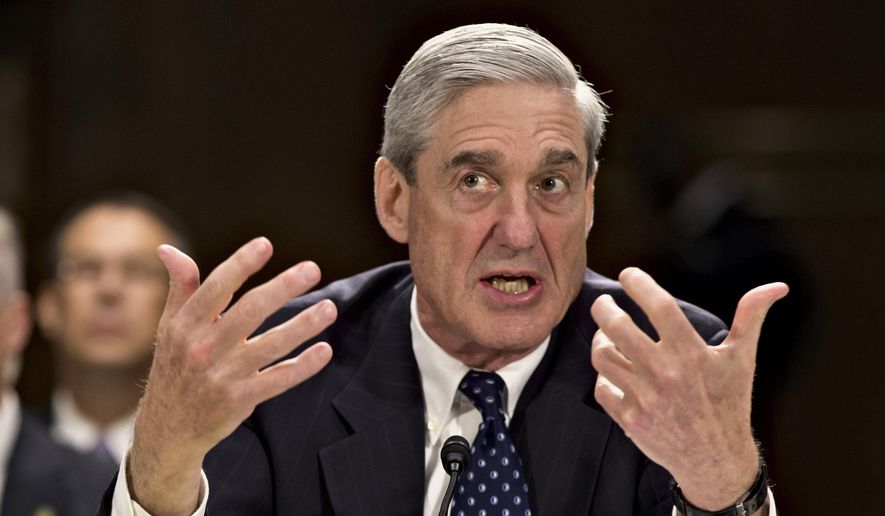On May 17, 2017, Deputy Attorney General Rod Rosenstein appointed Robert Mueller as Special Prosecutor to investigate alleged collusion between the Trump campaign and Russia.
Specifically, the order appointing Mueller authorized investigations into “any links and/or coordination between the Russian government and individuals associated with the campaign of President Donald Trump; and (ii) any matters that arose or may arise directly from the investigation; and (iii) any other matters within the scope of 28 C.F.R. § 600.4(a). (c) If the Special Counsel believes it is necessary and appropriate, the Special Counsel is authorized to prosecute federal crimes arising from the investigation of these matters.”
Special prosecutors are one response to the question raised long ago by Juvenal: “Who will guard the guards themselves?” The Executive Branch under the Constitution is entrusted with law enforcement. But to permit the Executive to investigate itself is to violate the time-honored canon that no man can be a judge in his own case.
Special prosecutors enjoy more or less autonomy within the Executive Branch to provide public confidence that their investigatory and prosecutorial decisions will not be compromised by a conflict-of-interest.
The following primer may help to understand and appraise the performance of Special Prosecutor Mueller and anticipate events as they play out in his investigation.
Have special prosecutors been appointed previously to investigate alleged misconduct involving the Executive Branch? Yes.
Among other things, President Ulysses S. Grant appointed special prosecutor John Henderson to investigate the Whiskey Ring in 1875. President Calvin Coolidge appointed Owen Roberts and Atlee Pomerene to investigate Teapot Dome in 1924. President Harry Truman appointed Newbold Morris in 1952 to investigate tax fixing between the Department of Justice and the Bureau of Internal Revenue. And Attorney General Elliot Richardson appointed Archibald Cox to investigate Watergate crimes in 1973.
Can Special Prosecutor Mueller prosecute President Trump? No.
Sitting Presidents are constitutionally immune from criminal prosecution, in contrast to sitting Members of Congress or the Supreme Court. The latter institutions are capable of functioning with absent Members or Justices, but the Executive Branch would be paralyzed without a functioning President.
Can Special Prosecutor Mueller be fired? Yes.
Current Department of Justice regulations permit Deputy Attorney General Rosenstein to discharge the Special Prosecutor for “misconduct, dereliction of duty, incapacity, conflict of interest, or for other good cause, including violation of Departmental policies.”These regulations are binding until or unless they are revoked or modified.
Congress by statute could prohibit President Trump or Rosenstein from discharging Special Prosecutor Mueller except for extraordinary improprieties according to the Supreme Court’s decision in Morrison v. Olson (1988).
What issues may divide President Trump and Deputy Attorney General Rosenstein and Special Prosecutor Mueller?
Declassification of classified evidence, executive privilege, or witness immunity.
Mueller’s investigation inevitably will implicate classified information concerning Russia or otherwise. If a summary of the classified information provided to a defendant under the Classified Information Procedures Act of 1980 would not satisfy due process, the government would be constitutionally required either to declassify the evidence or to dismiss the prosecution.
Special Prosecutor Mueller may disagree with Trump or Rosenstein over whether to declassify evidence to continue a prosecution. Mueller may also disagree with the two over whether executive privilege may be validly invoked to prevent disclosure of presidential communications pursuant to the standards expounded by the United States Supreme Court in Nixon v. United States (1974).
Finally, Mueller may disagree with Trump or Rosenstein over whether a witness should be granted use immunity from prosecution to testify against higher level officials or persons.
How much discretion will Special Prosecutor Mueller command in deciding whether to prosecute particular persons?
Prosecutorial discretion is enormous. Many criticized former FBI Director James Comey for declining to prosecute Hillary Clinton over her private emails. Then Attorney General Robert Jackson warned long ago:
“With the law books filled with a great assortment of crimes, a prosecutor stands a fair chance of finding at least a technical violation of some act on the part of almost anyone. In such a case, it is not a question of discovering the commission of a crime and then looking for the man who has committed it, it is a question of picking the man and then searching the law books, or putting investigators to work, to pin some offense on him. It is in this realm-in which the prosecutor picks some person whom he dislikes or desires to embarrass, or selects some group of unpopular persons and then looks for an offense, that the greatest danger of abuse of prosecuting power lies. It is here that law enforcement becomes personal, and the real crime becomes that of being unpopular with the predominant or governing group, being attached to the wrong political views, or being personally obnoxious to or in the way of the prosecutor himself.”
What are the dangers of special prosecutors?
That they will artificially tip the scales of justice against marquee name suspects to avoid charges of a cover-up or to win fame and remembrance.
There is no escape hatch from the Juvenal conundrum: Who will guard the guards themselves? There are no perfect solutions, only optimal ones.




Please read our comment policy before commenting.